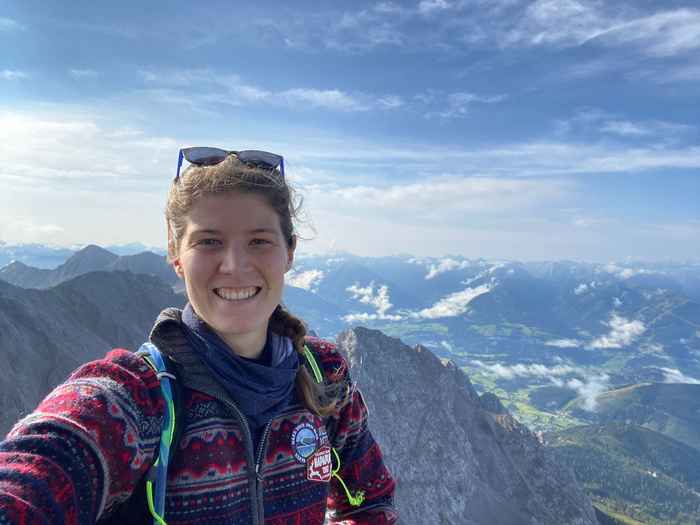Meet the alumnus

Eline Rentier
Master’s in Earth Sciences alumna
PhD researcher at the University of Bergen, Norway
The choice of doing the Earth Sciences Master's was an easy one for me. I had completed the BSc Future Planet Studies with a major in Earth Sciences, and wanted to dive deeper into the processes that shape the Earth’s surface. What particularly appealed to me about the Earth Science program at the University of Amsterdam was its comprehensive approach, focusing not only on the abiotic world but including geo-ecological dynamics as a whole.
In this programme, I learned to think in systems and understand the intricate yet dynamic relationship between geodiversity and biodiversity. The curriculum encouraged thinking on scales ranging from local to global, and discerning and connecting patterns across all four spheres. However, the best part (by a landslide) was the fieldwork. Not only is fieldwork essential to deepen your understanding of eco/geosystem functioning, but it is also a great way to learn how to collaborate with people and turn theory into practice.
Currently, I am a PhD researcher at the University of Bergen, Norway and I am part of the PPF-Alpine project. I reconstruct the spatiotemporal extent of alpine biomes and aim to quantify the connectivity between these biomes during the Quaternary, to explain present-day biodiversity patterns. I use the skills I obtained during my Master's every day, such as working with GIS, handling big data, reviewing literature, scientific writing and communicating science.
To you, the next generation of scientists, I recommend choosing something you are passionate about. A Master’s programme is not a definition of what you will become, but rather a tool of knowledge that lets you shape your path. Make it one you look forward to walking.
Questions for Eline?
If you’d like to reach out to Eline, you can reach her on LinkedIn.